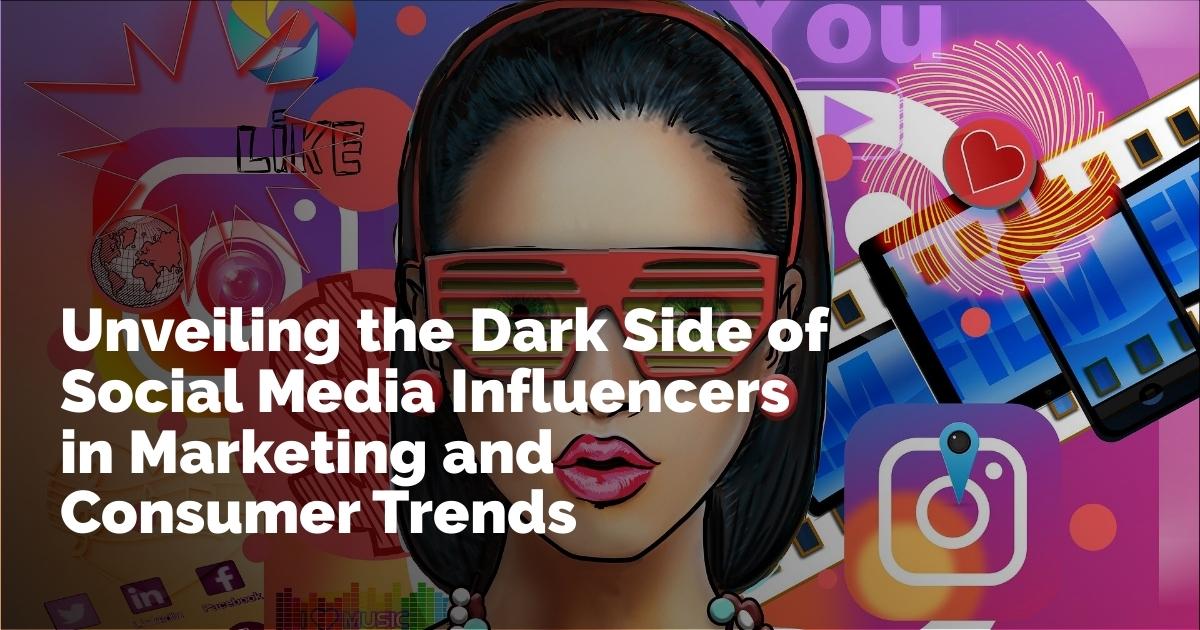The Dark Side of Social Media Influencers: Understanding Their Impact on Marketing and Consumer Behavior
In the fast-evolving landscape of digital marketing, social media influencers (SMIs) have emerged as powerful agents of change. Their impact on marketing strategies and consumer behavior has been significant, influencing everything from brand perception to societal norms. However, a recent study by the University of Portsmouth sheds light on a less glamorous aspect of influencer culture, revealing a spectrum of psychological, health, and security risks that merit closer regulation and scrutiny.
The Double-Edged Sword of Influencer Marketing
While social media influencers have transformed marketing dynamics by providing brands with direct access to niche audiences, their unchecked influence comes with alarming concerns. The study from the University of Portsmouth systematically investigates these hidden dangers, bringing to the fore issues such as misinformation, dangerous product endorsements, unrealistic beauty expectations, and privacy risks.
With influencer marketing set to hit $480 billion by 2027, brands are increasingly relying on SMIs to endorse products and establish consumer trust. A survey conducted by the Digital Marketing Institute in 2024 found that 60% of consumers place their trust in influencer recommendations, with influencer endorsements swaying nearly 50% of all purchasing decisions. Yet, alongside this growth in influence, various unintended consequences have surfaced, prompting calls for action.
Key Risks Identified in Influencer Culture
The research identifies six critical themes where influencer marketing poses potential harm:
-
Promotion of Harmful Products: Social media influencers often promote unhealthy products like diet pills, detox teas, and alcoholic beverages without adequate disclosure, influencing consumption habits, especially among young audiences.
-
Dissemination of Misinformation: Lacking necessary expertise, many influencers spread false information about health, politics, and social issues, leading to widespread misinformation and consumer confusion.
-
Reinforcement of Unrealistic Beauty Standards: By showcasing highly curated and filtered images, influencers contribute to body image issues, low self-esteem, and damaging beauty practices.
-
Fostering of Comparison Culture: The aspirational content shared by influencers can trigger lifestyle envy and social anxiety, exacerbating negative self-comparisons and reducing overall well-being.
-
Deceptive Consumption Practices: Ethical breaches such as undisclosed sponsorships, counterfeit product promotions, and misleading advertisements by some influencers undermine public trust.
-
Privacy Concerns: The extensive data collection and sharing by influencers pose significant security and regulatory issues, posing risks to both influencers and their followers.
Navigating Towards Ethical Influencer Marketing
Given these challenges, the study emphasizes the need for more stringent oversight, enhanced transparency, and ethical marketing strategies to mitigate the risks associated with influencer marketing. To achieve a balanced digital ecosystem, researchers propose several strategies for policymakers and marketers:
-
Transparency and Ethical Compliance: Brands should enforce clear disclosure policies to foster responsible influencer partnerships.
-
Regulation and Consumer Protection: Policymakers need to strengthen regulations on influencer marketing to curb deceptive practices and misinformation.
-
Mental Health Awareness: Companies and influencers must prioritize authentic content that promotes well-being, countering the pursuit of unattainable ideals.
- Data Privacy Protections: Stronger safeguards and awareness campaigns are essential to protect users from privacy breaches and data exploitation.
Addressing the Ethical and Psychological Consequences
Dr. Georgia Buckle, a Research Fellow at the University of Portsmouth, underscores the immense influence social media influencers wield over consumer choices and cultural norms. While they offer entertainment and engagement, the unbridled power of some influencers can result in serious ethical and psychological ramifications. The study thus advocates for proactive engagement from both academic and industry stakeholders to confront these challenges head-on.
The study offers a comprehensive framework for analyzing influencer culture beyond its commercial appeal, stressing the necessity for ethical marketing practices and a healthier, more mindful digital sphere. As the digital realm continues to expand, the challenge lies in ensuring that the influence wielded by social media figures is both responsible and beneficial for society at large.
출처 : Original Source

